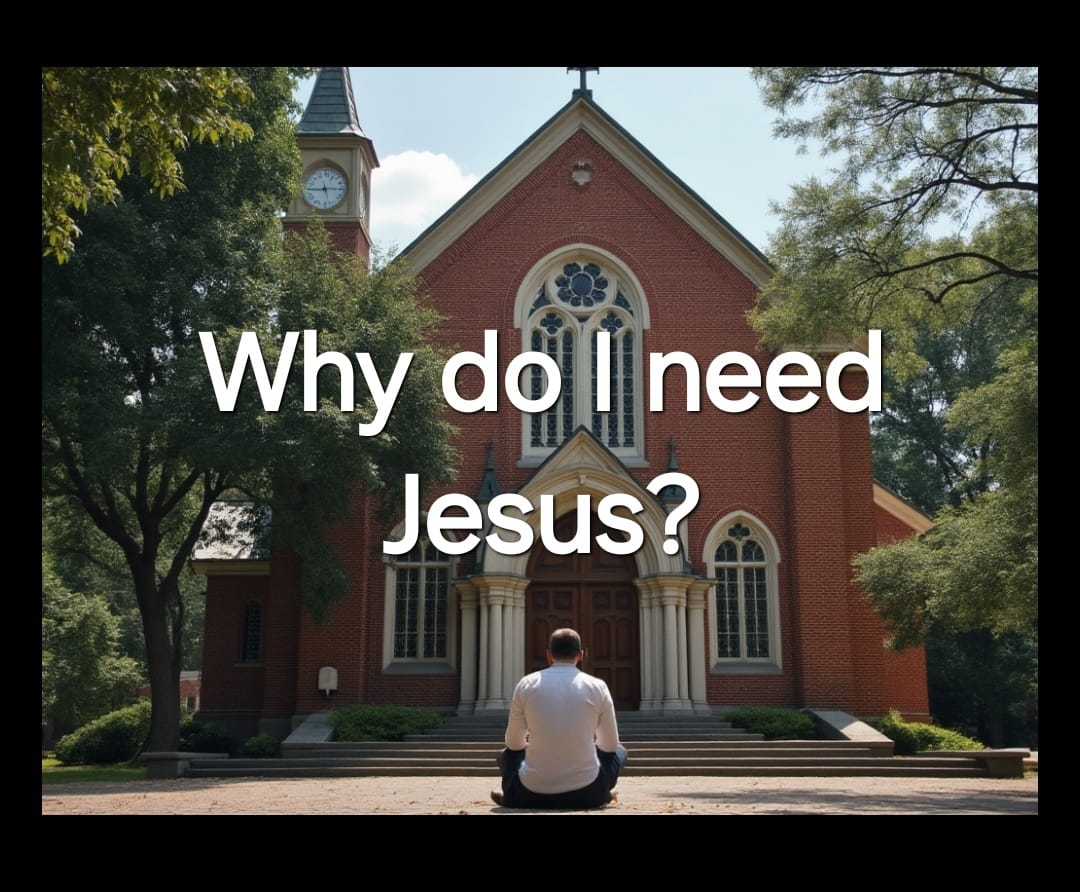
Why do I need Jesus?
Daniel JusticeShare
The New Testament teaches that all humans have sinned and fall short of the glory of God (Romans 3:23). Sin creates a barrier between humanity and God, leading to spiritual death (Romans 6:23). Jesus is presented as the savior who, through his death and resurrection, provides forgiveness of sins and reconciliation with God. This is encapsulated in John 3:16, where belief in Jesus leads to eternal life.
Jesus is described as the mediator of a new covenant (Hebrews 9:15), suggesting that access to God is now through him. This mediation is necessary because, as 1 Timothy 2:5 states, "there is one God and one mediator between God and mankind, the man Christ Jesus."
Jesus himself claims exclusivity in John 14:6, saying, "I am the way, and the truth, and the life. No one comes to the Father except through me." This statement underscores the New Testament's teaching that Jesus is the sole path to salvation and a relationship with God.
Jesus not only offers forgiveness but also life. John 11:25-26 presents Jesus as saying, "I am the resurrection and the life. The one who believes in me will live, even though they die; and whoever lives by believing in me will never die." This points to Jesus as the source of eternal life.
Jesus fulfills the law and the prophets (Matthew 5:17), meaning he completes and perfects the Old Testament requirements, making a new way for humanity to approach God, not through adherence to the law, but through faith in him.
Through Jesus, God was reconciling the world to himself (2 Corinthians 5:18-19). This act of reconciliation is necessary because of the enmity created by sin, which Jesus's sacrifice on the cross addresses.
Jesus not only saves but also serves as an example for living (1 Peter 2:21) and as a high priest who intercedes for believers (Hebrews 7:25). His life, death, and resurrection provide both a model for Christian living and a continual intercession before God.
The New Testament consistently portrays Jesus as essential for salvation, not just as a moral teacher or prophet, but as the divine Son of God whose life, death, and resurrection bridge the gap between sinful humanity and a holy God. This necessity of Jesus is not just for moral guidance or historical significance but for the transformation and salvation of the individual's soul, offering forgiveness, eternal life, and a restored relationship with God.
